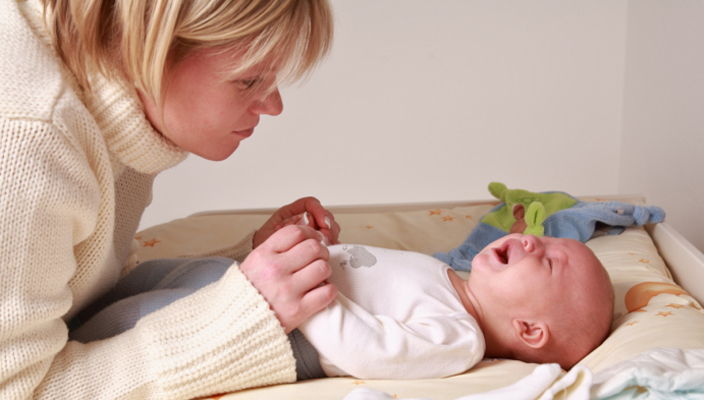Colic condition is a medical term used to describe the uncontrollable crying seen in healthy babies. It is natural for babies to cry, the obvious reasons being due to hunger, being wet, frightened etc. However when a baby cries excessively with its shrieks becoming higher than usual with sudden starts and stops of crying episodes it may be indicative of the colic symptoms. So how to determine if a baby has a colic condition and ensure treatment right at the earliest stages? Here are a few common symptoms discussed that can help you gauge whether your baby is undergoing colic condition.
No amount of patting, feeding or rocking the baby wills sooth a colic baby. The pitch of the crying is much higher and sounds more like a shriek than crying and is definitely more intense. Keep a track of how long the crying episodes last. If it lasts for more than 3 hours in a day and this has been continuing for more than 2-3 weeks, it’s time you take precautions and get your baby checked. In fact it’s advisable to do so after a week itself.
Colic babies are very stressful to handle and it is usually said to be at its peak when a baby is around 6 weeks old. Excessive colic crying can make the baby arch its back and clench its fingers while shrieking out and this in turn induces gassy tummy due to swallowing of air. The baby becomes flushed and might even pass gas or have bowel movement while crying. The tummy may produce more than normal rumbling sounds too as a result of gas.
Unlike in cases where a baby is unhealthy, babies with colic will not show any symptom of discomfort or restlessness in between the bouts of colic that occur. They behave normally and are fine throughout the day and the attacks are always sudden. As such there is no additional abnormality as they feed like any normal baby and grow well too without any other sign of illness other than the crying.
Listening to a baby cry is very distressing and more so for a colic baby whose shrieks last for long periods and are high pitched. There are no particular theories but numerous ones as to why babies have a colic tendency. However, as long as your baby grows normally and any other chances of infection and health problems are eliminated, you can stop worrying too much about your colic baby. Consulting a paediatrician and handling your baby with extra care is all you can do along with prescribed anti gas medicines which doctors usually prescribe in such cases. Once a baby reaches about 3-4 months of age, it becomes fine and the colic symptoms too recede.


